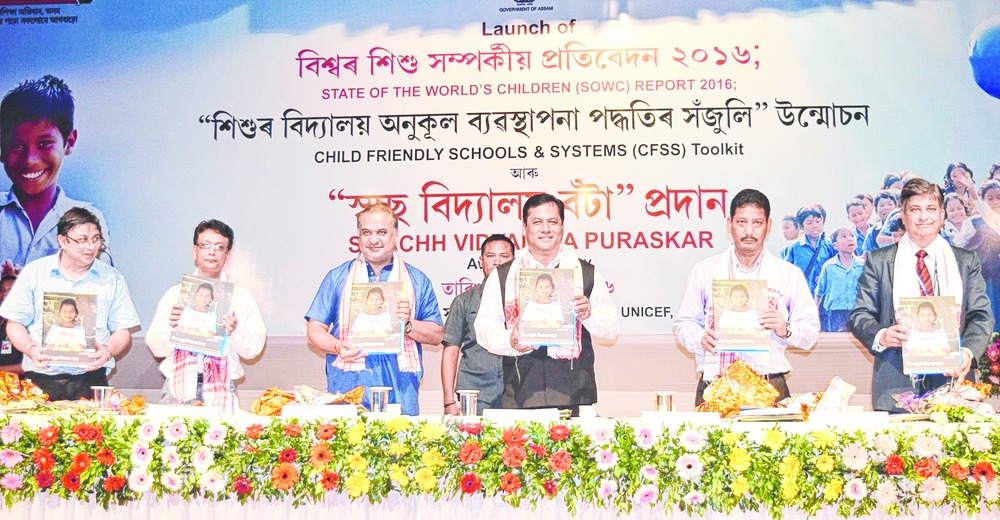
Guwahati, June 28: The Assam government will follow a Gujarat model to keep its schools clean.
Assam education minister Himanta Biswa Sarma today said the state government would organise the annual Gunotsav of Gujarat government twice a year in the state. On Gunotsav, Gujarat government officials visit all schools at the same time and grade them on the basis of cleanliness.
"In Assam, 48,000 government officials will visit the schools twice in a year. They will evaluate the schools based on some criteria like their cleanliness, presence of trees on the school premises and awareness of the students about hygiene. The schools will be given A, B and C grades. Those schools which will perform poorly will be encouraged to improve themselves," said Sarma.
Sarma said he personally would visit one school on the day.
The education department had recently sent a senior official to Gujarat to study the Gunotsav practice.
Sarma was attending a programme to hand over Swachh Vidyalaya Puraskar to schools and release Unicef's State of the World's Report at Rabindra Bhawan this morning. The programme was jointly organised by Sarba Shiksha Abhijan and Unicef.
Chief minister Sarbananda Sonowal, PHE minister Rihon Daimary and chief of field office of Unicef Tushar Rane were also present at the event.
Of 47,000 schools which had participated for the award, only 10 were selected. The selection was made based on some criteria like cleanliness of school premises, cleanliness of toilets, availability of drinking water and separate toilets for boys and girls.
The award consisted of Rs 20,000 and a citation. Six other schools were also felicitated for performing well.
Assam is the first state in the country to institute the award.
In the programme, a toolkit comprising two booklets on health and hygiene for the teachers and students was also launched.
Sarba Shiksha Abhijan and Unicef had launched their "child-friendly school" system in 2011 at Rani and Rampur blocks in Kamrup districts covering 20 lower primary schools. Altogether 200 students and 50 teachers were covered under the scheme.
Now, the number of such schools has increased to 100 covering 300 teachers and 7,000 students. Child-friendly schools are equipped with proper drinking water facility, learning material and a homely environment.
Sonowal said stress should be given on teaching cleanliness to schoolchildren. He also appealed the parents to give saplings as birthday gifts to their children.










